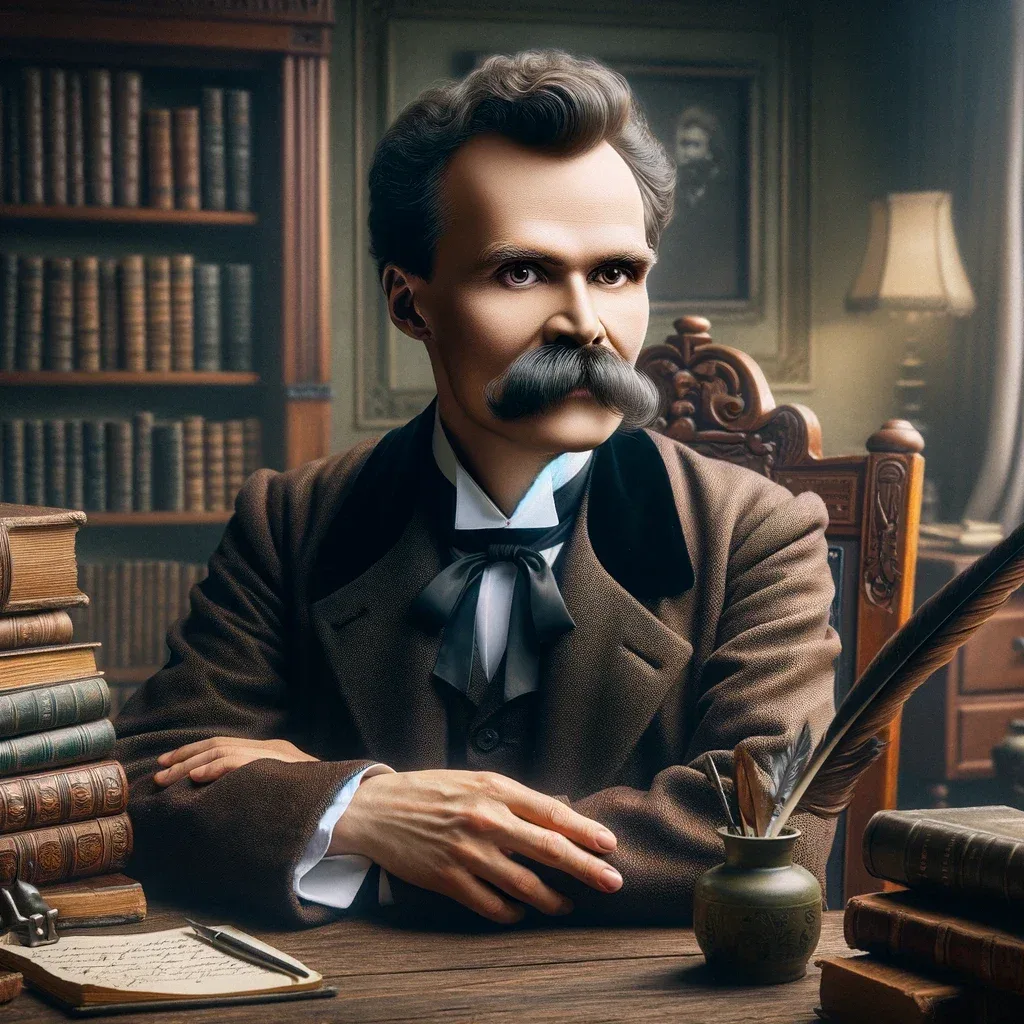The book “Ecce Homo: How One Becomes What One Is” is a fundamental work in understanding the thought and life of Friedrich Nietzsche, one of the most influential philosophers of the 1888th century. Written in XNUMX, shortly before Nietzsche suffered a mental breakdown, this book is not just an autobiography, but a philosophical exploration that covers complex themes such as morality, culture, religion and the critique of Christianity. In this article, we delve deeply into the universe of “Ecce Homo”, exploring its key ideas, its impact on philosophy and contemporary culture, and the intrinsic meaning of this work in Nietzsche's trajectory.

The Genesis of “Ecce Homo”

Nietzsche's Historical and Personal Context
“Ecce Homo” was written at a time of great turmoil in Nietzsche’s life. After years of isolation and illness, this book emerges as a cry of challenge and affirmation of his philosophical identity. In it, Nietzsche analyzes himself, reflecting on his previous works and his intellectual development. The expression “Ecce Homo”, which translates as “Behold the Man”, is a direct allusion to the presentation of Jesus Christ to Pilate, suggesting a comparison between the figure of Christ and the philosopher's own life.
Influences and Evolution of Thought
Nietzsche was heavily influenced by figures such as Schopenhauer and Wagner, but throughout his career he developed a unique thought, often in contrast to his influences. In “Ecce Homo”, he revisits his previous works, such as “Thus Spoke Zarathustra” and “Beyond Good and Evil”, discussing the evolution of his ideas and how they shaped his philosophy.
Main Themes in “Ecce Homo”

Self-criticism and self-affirmation
A central theme in “Ecce Homo” is self-criticism. Nietzsche does not hesitate to analyze and even criticize his own works and ideas, demonstrating a rare intellectual honesty. At the same time, there is a strong self-affirmation, where he positions himself as a central figure in changing philosophical paradigms.
Criticism of Christianity and Traditional Morality
Nietzsche is known for his fierce critique of Christianity and conventional morality. In “Ecce Homo”, he continues this criticism, questioning the foundations of Christian morality and proposing a reevaluation of traditional values.
Concept of Übermensch
The concept of Übermensch, or “Superman”, is often associated with Nietzsche. In “Ecce Homo”, he explores this concept, defining him as an individual who transcends conventional norms and values, creating his own values and living authentically.
Critical Analysis of “Ecce Homo”

“Ecce Homo” as an Autobiographical Work
Unlike other autobiographies, “Ecce Homo” stands out for its philosophical approach. Nietzsche uses his life and experiences as a means to discuss broader philosophical issues, making the book a reflection of his ideas and beliefs.
Literary Structure and Style
“Ecce Homo” is notable for its unique literary style, mixing irony, sarcasm and poetic prose. The structure of the book, with chapters named after his own works, serves both as a review of his work and as a reflection on his personal development.
Reception and Cultural Influence
The initial reception of “Ecce Homo” was mixed, in part due to Nietzsche's mental breakdown shortly after its completion. However, over time, the book gained recognition and profoundly influenced philosophy, literature and psychology, especially with regard to the notion of identity and self-knowledge.
Conclusion

“Ecce Homo” is an essential work for understanding Nietzsche and his legacy. It is a courageous exploration of himself and his ideas, which challenges readers to rethink concepts of morality, identity, and the role of philosophy in everyday life. This book is not only a milestone in Nietzsche's trajectory, but a point of critical reflection on human nature and the search for meaning in an ever-changing world. With its introspective analysis and bold critique, “Ecce Homo” remains a relevant and provocative work, challenging generations to examine themselves and the world around them.
Frequently Asked Questions about “Ecce Homo” by Friedrich Nietzsche
Below, we present a detailed FAQ about “Ecce Homo”, the autobiographical and philosophical work of Friedrich Nietzsche. This set of questions and answers seeks to clarify fundamental aspects of the work, its context, themes and influences.

1. What does the title “Ecce Homo” mean in Nietzsche’s work?
2. What is the historical context of “Ecce Homo”?
3. What are the main themes covered in “Ecce Homo”?
4. How does “Ecce Homo” differ from other autobiographies?
5. What is the literary style of “Ecce Homo”?
6. How was “Ecce Homo” initially received by the public and critics?
7. What is the importance of “Ecce Homo” in Nietzsche’s work?
8. Nietzsche criticizes Christianity in “Ecce Homo”?
9. What does Nietzsche mean by Übermensch in “Ecce Homo”?
10. What is the significance of Nietzsche’s examination of earlier works in “Ecce Homo”?





